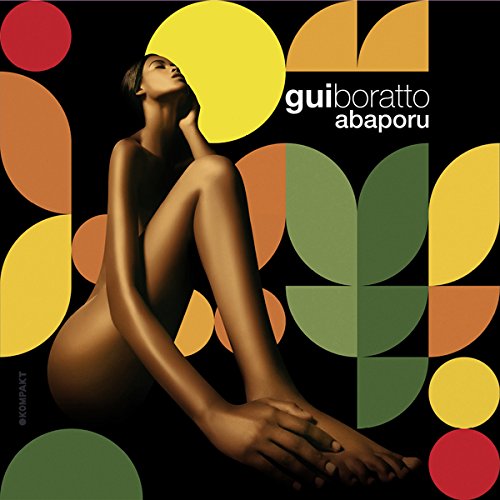
Gui Boratto
Abaporu
Release Date: Sep 30, 2014
Genre(s): Electronic, Techno, Club/Dance, Tech-House
Record label: Kompakt
Music Critic Score
How the Music Critic Score works
Buy Abaporu from Amazon
Album Review: Abaporu by Gui Boratto
Very Good, Based on 5 Critics
Based on rating 8/10
Head here to submit your own review of this album. Like his music, Gui Boratto evolves before your eyes. The Brazilian producer has been crafting meticulously stunning electronic albums for decades; he came to international attention with his first solo release in 2007, Chromophobia. It sounded sharp and focused, every note and beat in stark relief.
Based on rating 7/10
The bass in my car, it’s choosy about what it rattles to, or at least it seems that way. I’m sure a sound engineer somewhere could explain away why some albums pass through my stereo system scot-free, while others shake the floor of my Toyota like a Californian earthquake. But it’s more fun to imagine my stereo system as choosy, as moving only to what it wants to move to.
Based on rating 3.5/5
To the casual listener, Brazilian producer Gui Boratto may seem like little more than an adept creator of house and techno—a notably lush and melodic brand of house and techno, perhaps, but house and techno nonetheless. But as his fan base knows, that's only half the story. Nestled among the minimal-minded club cuts of 2007's Chromophobia, there's the dreamy exaltation of "Beautiful Life" and the innocent, swirling fizz of "Acróstico.
Based on rating 6/10
Named after a painting by Tarsila do Amaral and sporting a cover with artwork inspired by the Brazilian modernist, Abaporu is Gui Boratto's fourth Kompakt album. The dark edge of the producer's previous release for the Cologne-based label, 2011's III, has been replaced by brighter splashes that place it closer in tone to Chromophobia. Among the highlights are the taut and dramatic "Joker," the relatively kicked back "Please Don't Take Me Home," and "Manifesto," which slinks almost as strikingly as the Roxy Music song of the same title.
Based on rating 6/10
Putting out nine separate 12-inch singles and remixes since the release of his last album (2011's III), Gui Boratto comes off sounding more confident and hungry on his fourth full-length, the multichromatic Abaporu. Naming his album after and basing its cover art on one of Brazil's most famous works of art, much of the music on Abaporu seems to mimic the painting's slinky, skewed and freehand feel. Although Boratto does a terrific job mimicking the campiness of bachelor-pad electro (similar to what Todd Terje did on this year's It's Album Time) on "Antropfagia" and "Where I Belong," the Brazilian DJ also attempts to capture '90s dance floor techno on vocal-infused tracks like "Get the Party Started" and "Too Late," often pulling the listener out of the album's genre-fuelled paradigm.
'Abaporu'
is available now

